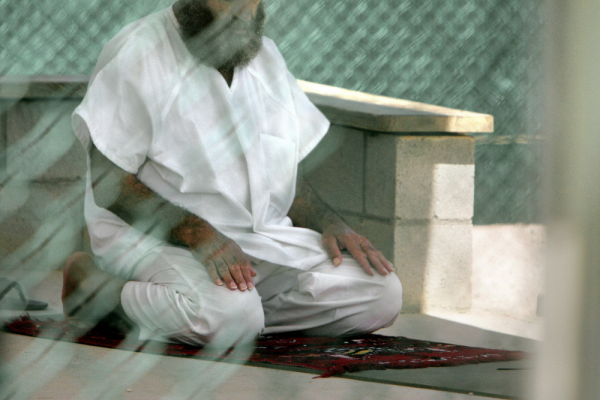People in the United States have deeply conflicting understandings of our nation’s history: Are we a nation that guarantees “liberty and justice for all”? Or are we a nation that will continue to confine this promise to only certain Americans, falling short of realizing this promise for all? When we explore these questions, we start to see that many injustices that show up today have been with us since the nation’s founding.
Muslim detainees at Guantanamo are “indefinite prisoners of war,” held on suspicion of crimes they may or may not have committed. It would be easy to believe that Guantanamo is unique in regards to how it treats those the United States has deemed its enemies. But in reality, Guantanamo is an extension of the U.S. prison system.
On Sept. 15, 2001, Balbir Singh Sodhi, a Sikh man, was killed while he was planting flowers at the gas station he owned in Mesa, Ariz., becoming the first victim of post-9/11 hate crimes. For then-college student Valarie Kaur, the murder of “Balbir Uncle”— as he is known to Kaur and others in the Sikh community — was a pivotal moment.
What does it mean, now two decades past this traumatic event, to “never forget” 9/11? And why are we simultaneously encouraged to “move on from the past” when it comes to other great American tragedies, like the genocidal erasure of Indigenous peoples, or the horrific violence against Black people from chattel slavery through Jim Crow?
For the first time, the leaders of the Roman Catholic Church, the Eastern Orthodox Church, and the Anglican Communion came together to issue a joint statement.
In “A Joint Message for the Protection of Creation,” Pope Francis, Ecumenical Patriarch Bartholomew I, and Archbishop Justin Welby of Canterbury stressed that Christians need to take part in mitigating climate change. The statement urged individuals and public leaders to play their part in “choosing life” for the future of the planet, and warned of the urgency of environmental sustainability, its impact on poverty, and the importance of global cooperation.
When the Supreme Court last week refused to block a new Texas law — which bans abortion after about six weeks of pregnancy and allows private citizens to sue abortion providers and anyone who “aids or abets” someone getting an abortion after six weeks — faith groups like Texas Right to Life and the Texas Catholic Conference of Bishops applauded.
But Rev. Erika Forbes, a spiritual adviser and one of the plaintiffs in a lawsuit to block S.B. 8, called the law “a direct assault” on the religious liberty of clergy.
Two concerts in the nation’s capital next week by conservative singer-songwriter and activist Sean Feucht have raised concerns about security after an event in Portland, Ore., last month ended in violence between far-right extremists and counterprotesters.
How we respond to an emergency says a lot about who we are. This week, faith-based groups started organizing for disaster relief before Hurricane Ida even made landfall, while health clinics in Texas did their best to help everyone they could before a new law imposed a state-wide ban on abortions.
After 20 years of war and violence under four different presidents — and the deaths of more than 172,000 people — the United States withdrew its last troops from Afghanistan on Monday.
For many, ending the war in Afghanistan seems like a step toward a more peaceful future. But even in the process of ending a war, the United States has relied on violence to enforce its will.









